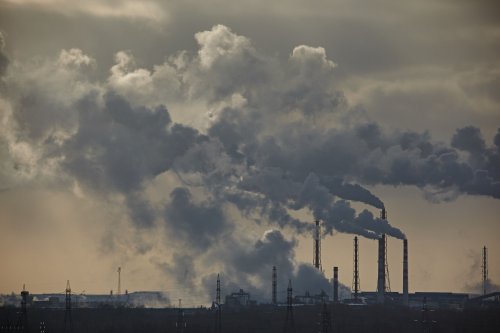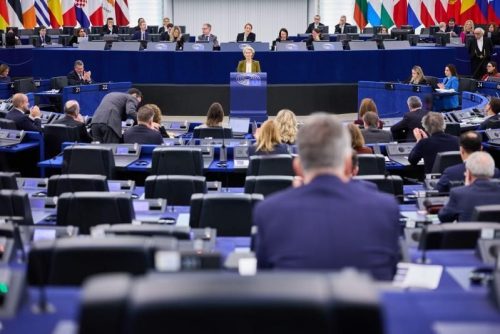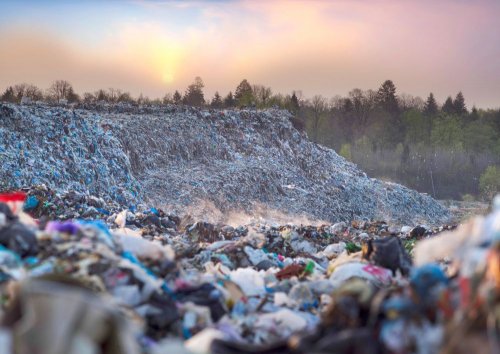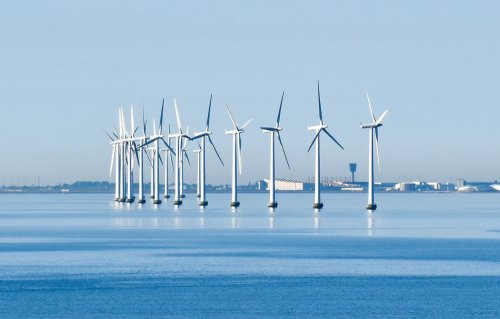The EU is only partially on track to meet its climate and environmental goals and targets by 2030, with only 5 out of 28 indicators classified as “on track” by analysts.
These results are contained in the second annual progress report on the implementation of the climate and environmental goals of the 8th Environment Action Program (8EAP). It was published by the European Environment Agency (EEA).
Progress was assessed by 28 key indicators approved by the European Commission. They are grouped into 8 areas:
- Climate change mitigation.
- Adaptation to climate change.
- Regenerative circular economy.
- Zero pollution and safe environment.
- Biodiversity and ecosystems.
- Environmental and climate pressures related to production and consumption in the EU.
- Favorable conditions.
- Decent life within the planetary boundaries.
The researchers classified each of the indicators into one of four categories:
- “on track” (green color)
- “probably on track“ (”likely on track” – light green);
- “likely off track” (yellow);
- “off track“ (”off track” – red color).
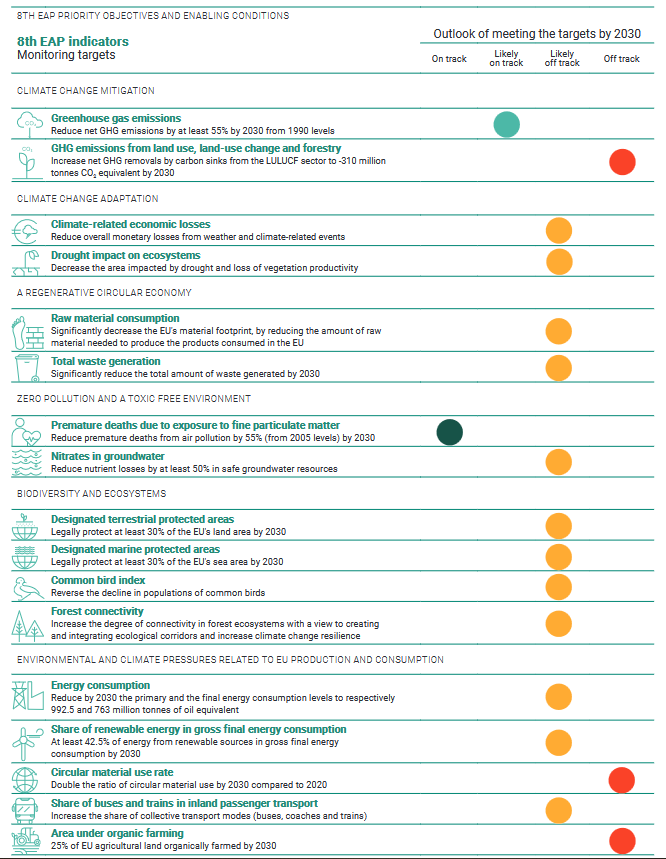
Source: eea.europa.eu.
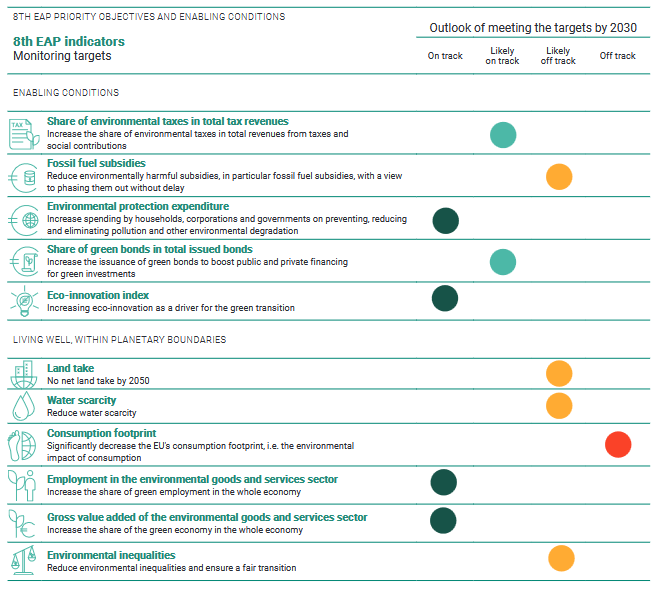
Source: eea.europa.eu.
As a result, only 5 indicators were included in the “on track” group:
- Premature mortality due to exposure to fine particulate matter. The goal is to reduce premature mortality from air pollution by 55% (from 2005 levels) by 2030.
- Expenditures on environmental protection. The goal is to increase spending by households, corporations, and governments to prevent, reduce, and eliminate pollution and other types of environmental degradation.
- Eco-innovation index. The goal is to increase eco-innovation as a driving force for the green transition.
- Employment in the sector of environmental goods and services. The goal is to increase the share of green employment in the economy as a whole.
- Gross value added in the sector of environmental goods and services. The goal is to increase the share of the green economy in the overall economy.
Only 3 indicators were included in the group “probably on the right track”:
- Greenhouse gas emissions. The goal is to reduce net greenhouse gas emissions by at least 55% by 2030 from 1990 levels.
- Share of environmental taxes in total tax revenues. The goal is to increase the share of environmental taxes in total revenues from taxes and social contributions.
- Share of green bonds in total bonds issued. The goal is to increase the issuance of green bonds to increase public and private financing of green investments.
Analysts have recorded an outright failure in the implementation of the Action Program in the following four indicators:
- Greenhouse gas emissions from land use, land use change, and forestry. The goal is to increase the net absorption of greenhouse gases by carbon sinks in the land use, land use change and forestry sector to -310 million tons of CO2 equivalent by 2030.
- Utilization rate of secondary materials. The goal is to double the share of recycled materials by 2030 compared to 2020.
- Area under organic farming. The target is 25% of EU agricultural land under organic farming by 2030.
- Consumer footprint. The goal is to significantly reduce the EU's consumer footprint, i.e. the environmental impact of consumption.
All other indicators – there are 16 of them – fell into the category of “probably off course.”
What do officials think about this?
The reaction of the relevant European commissioners to the published progress indicators was not delayed. Here's what Commissioner for Environment, Water Sustainability and a Competitive Circular Economy Jessica Rosewall had to say:
“The EEA 2024 progress report is a stark reminder of the urgent need to accelerate political action on the ground. To achieve our goals, we need a shift in mindset and transformational change.”
She is convinced that the European Commission should work with all stakeholders and focus primarily “on implementing and enforcing the agreed legislation”.
Commissioner for Climate, Clean Growth and Zero Greenhouse Gas Emissions, Wopke Hoekstra, said:
“This progress report confirms once again that we need to step up our efforts to achieve zero emissions. While we have made significant progress – especially in reducing emissions and promoting green finance – there is still a long way to go and no room for complacency. Every sector must do its part.”
In his opinion, in order to create a climate-neutral and competitive Europe, it is necessary to “push forward the policies we have agreed on, increase investment and stimulate real change in energy, industry and mobility”.
As EcoPolitic previously reported, the EU has reduced greenhouse gas emissions by 5 million tons.


